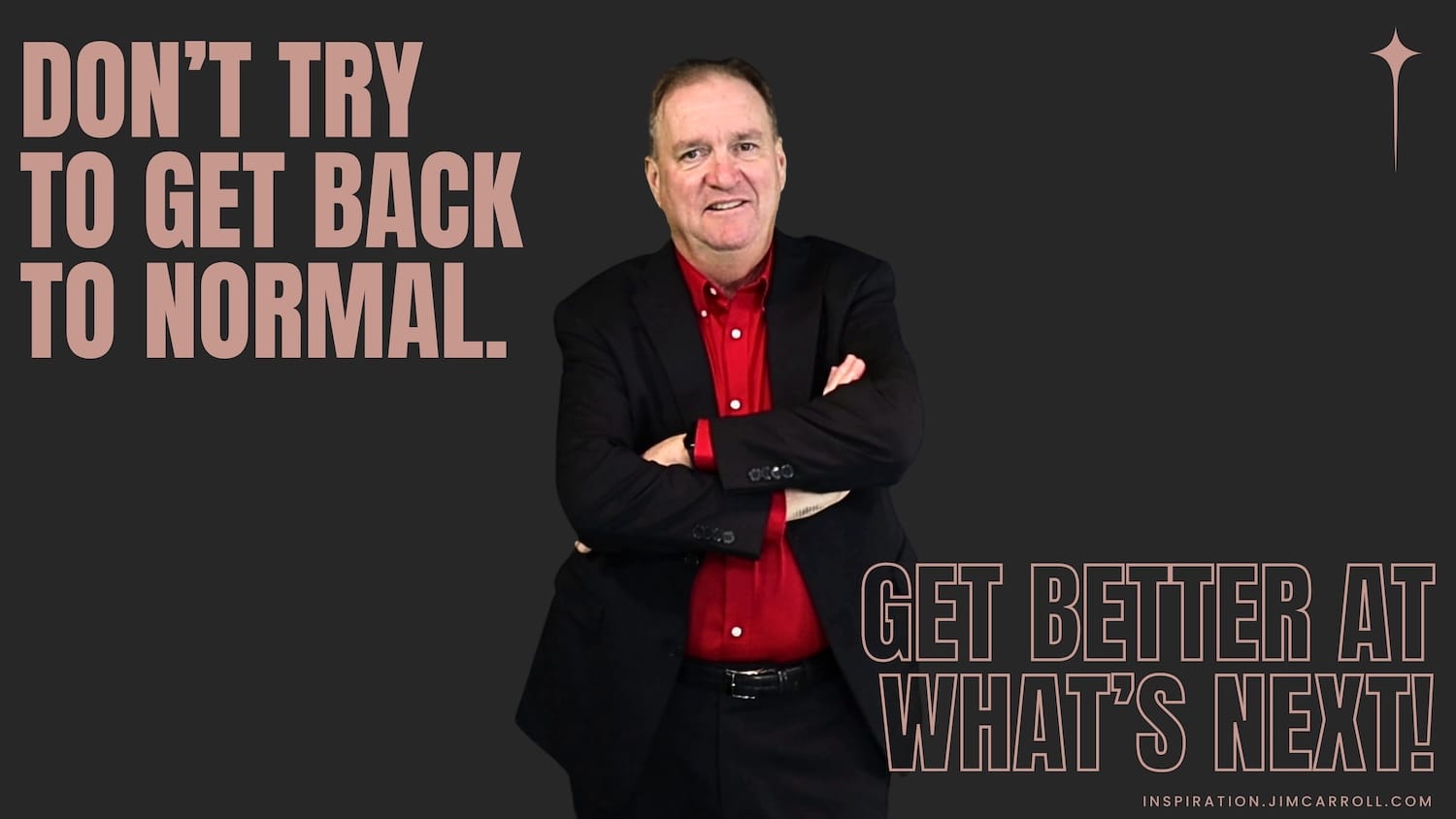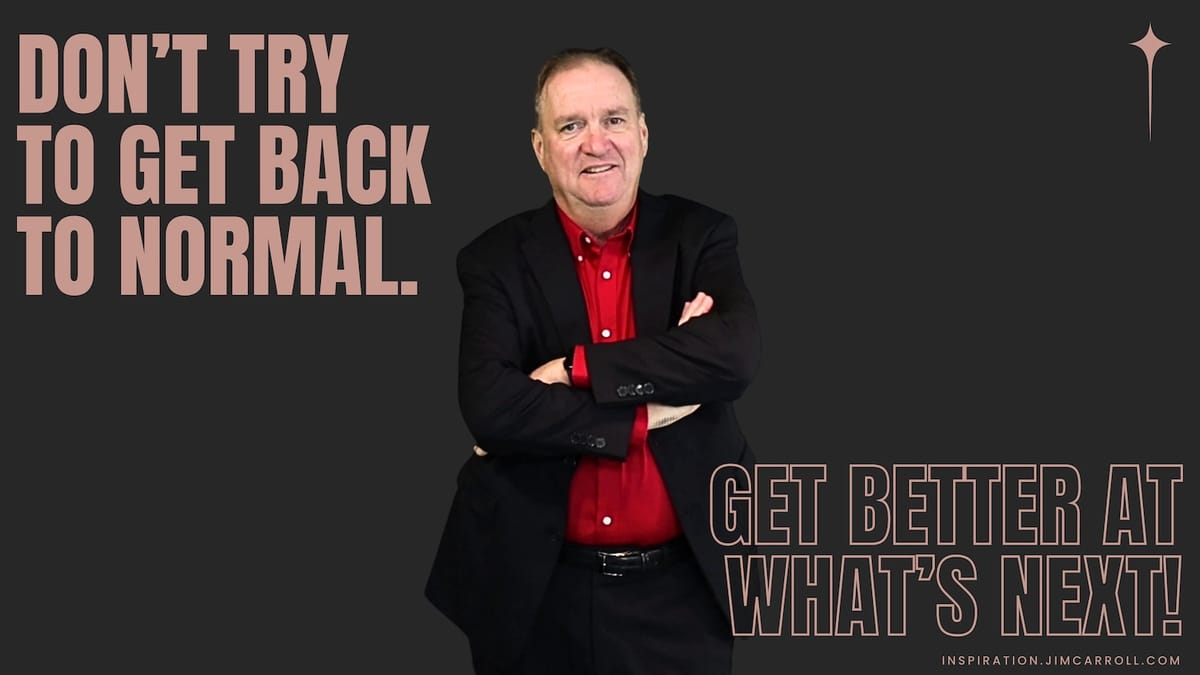"Don't try to get back to normal. Get better at what's next!" - Futurist Jim Carroll

One thing that strikes me about these times is that I see a lot of people saying that they can't wait for things to get back to normal.
Me too.
But there is a trap in this thinking: the new normal won't be the same as the old normal. While you are busy waiting to get back to it, 'it' will have changed.
This means we need to confront a fundamental truth about how we navigate disruption, uncertainty, and the accelerating pace of change that defines our era. That's the key theme I've been capturing in my new book Dancing in the Rain. I just read the latest version of the manuscript yesterday after the edit by my wife and business partner, and I must say it's pretty good!
What became apparent is that this concept of 'getting better at what's next' has emerged as one of the central themes found within its pages. Here are some foundational ideas from the book that illuminate why this mindset is so critical:
- Nostalgia is a sedative, not a strategy: I point this out: "Nostalgia is a powerful drug. But nostalgia is not a strategy. It's a sedative." Clinging to what once was prevents you from moving forward.
- The familiar is actively failing all around us: Old industries are dying, old skills are becoming irrelevant, old knowledge is going out of date, and old jobs are disappearing. This means returning to old ways is not a viable option.
- The future arrives regardless of our readiness for it." It "does not wait for comfort" and "does not slow down in a recession - it speeds up." Tomorrow is going to happen - will you be part of it?
- Crises reshape the ambitions of winners: Recessions and disruptions are not the time to shrink your ambition. They are a time to reshape it. They force a focus on "what could be."
- Growth stems from disruption, not past optimization: Growth does not come from optimizing what used to work, it comes from disrupting it! Organizations must "redesign, not refine" and "reinvent, not recover."
- Progress is unstoppable: While you are caught up in your economic grief, trends are accelerating. History is clear on this: the future always finds a way. As I write in the book, you "can delay progress, you can defund it, you can deny it... but you can not delete it."
- Your mindset will dictate your outcome: Recessions do not kill opportunity. Mindsets do. Winners refuse to participate in the fear and choose strategic investment over reckless retreat!
Right now, this philosophy matters more than ever. Accepting that change is constant and focusing on future improvement, helps you to build resilience. It teaches you to bend rather than break, to learn from disruption rather than be paralyzed by it.
"Getting better at what's next" inherently demands innovation. It pushes you to find new solutions, improved processes, and a willingness to explore uncharted territory. That means you can take control and actively shape your future, finding opportunities in new circumstances, rather than being stuck. The fact is, it forces you to focus on learning - it reframes it as a chance to acquire new skills, insights, and perspectives that will be valuable for future endeavors. It will also help you to avoid stagnation. Clinging to "normal" causes you to freeze in place; but getting better at what's next will force you to continuously improve and evolve, preventing you from being left behind.
And perhaps more importantly, it moves you into action, so that your energy is channeled into understanding and mastering all the new emerging realities, causing you to move forward, not back,
You know my key message is this: the world is not slowing down. Technology continues to accelerate. Products continue to be redefined. Consumer expectations continue to evolve. The question isn't whether change will come - it's whether you'll be ready for it.
The bottom line is this: You can spend your energy trying to reconstruct what was, or you can invest it in building what could be. You can mourn the familiar, or you can master the emerging. You can wait for clarity, or you can create it through action.
The future doesn't belong to those who long for yesterday. It belongs to those who dance in the rain!
What's your next move?
— —
Jim Carroll is a futurist, trends and innovation expert, and the author of the upcoming book “Dancing in the Rain.” He helps organizations and leaders navigate disruption and accelerate into their future reality

